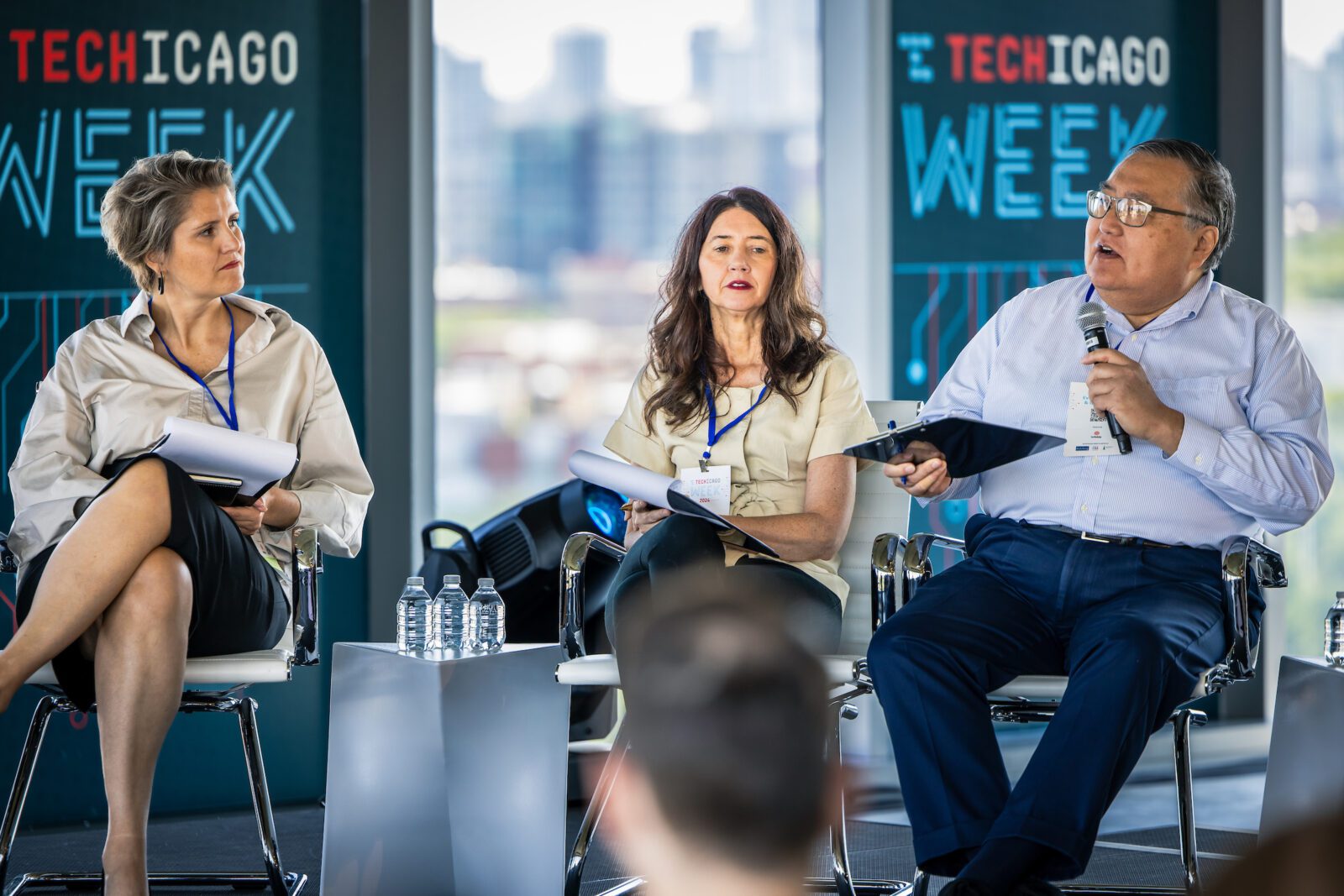
Photo by David T. Kindler
Bob Okabe is the director of New Business Ventures at Discovery Partners Institute, part of the University of Illinois System.
Recently I was honored to be one of the judges at TechChicago Week’s Biotech and Life Sciences Pitch Competition. My fellow judges were Margarita Chavez, venture partner at Wellington Life Science Partners; Julia Monfrini Peev, founder of Pace Healthcare Capital; and Nancy Sullivan, CEO and managing director of Illinois Ventures. As the four of us gathered to select the winner of the $25,000 prize, the organizers asked each of the judges our top two companies. I was a bit surprised that Margarita, whom I really respect, named the same two companies that I did.
What makes a successful venture?
After some reflection, it probably comes down to how we both define what a successful venture is. The not-so-hidden secret of venture capital is that a small number of investments, generally less than 15 percent, produce financial returns so great that they cover the inevitable losses from investments in failed startups and generate superior returns on a fund’s total investment.
While our mission at Discovery Partners Institute is equitable economic development, our approach to business building is similar to the venture capital model. That small number of spectacularly successful startups creates huge numbers of high-paying jobs. Our reality is that firms that don’t reach those heights, while successful in their own way, end up among the 89 percent of American businesses that have fewer than 20 employees.
Not many users think about the tens of thousands of employees behind the Google homepage or Facebook’s thousands of employees across the globe. Our Business Building team thinks about them every day. We are intensely focused on developing new ventures that can make the leap into the top 15 percent in their fields and become the drivers of well-paid new economy jobs and economic growth in their communities.
An evolving mindset …
After the winner of the TechChicago competition was announced, I wandered back into the green room for speakers and panelists. A few minutes later, two of the other presenting CEOs stopped by to chat. I geared myself up for possibly difficult conversations about why they didn’t win. To my amazement, their questions focused on getting additional feedback and advice on how best to move forward. I spent five to ten minutes with each of them, answering questions and discussing strategy and markets.
The next day I thought about how different those conversations were from the ones I had with entrepreneurs when I first entered the startup world around the turn of the century (I love saying that). Back then the conversations were more confrontational and combative. I think that there are two reasons for this.
I definitely contributed to that environment. You see, my initial entrée into the startup world was as an angel investor. I was fortunate enough to meet the financial qualifications as an accredited investor as defined by the Securities and Exchange Commission, but I had not achieved enough to reach “never have to work again” status.
I felt that I needed to be right more often than the average angel in order to keep making investments. That led to my questioning startup founders in ways that were more critical than helpful. More than a dozen investments later, I’ve become more at ease with the process. A couple of great exits certainly helped!
And an evolving community
The other change is the growth and maturity of the entrepreneurial ecosystem in Chicago and across Illinois. Entrepreneurs have become more sophisticated as the startup community has grown and best practices have become accepted wisdom rather than urban myths. The continued evolution of the startup community in Illinois is a testament to the hard work of the thousands of founders, investors, and advisors who have made Chicago one of the top startup hubs in the country.

Photo by David T. Kindler
Author: Bob Okabe